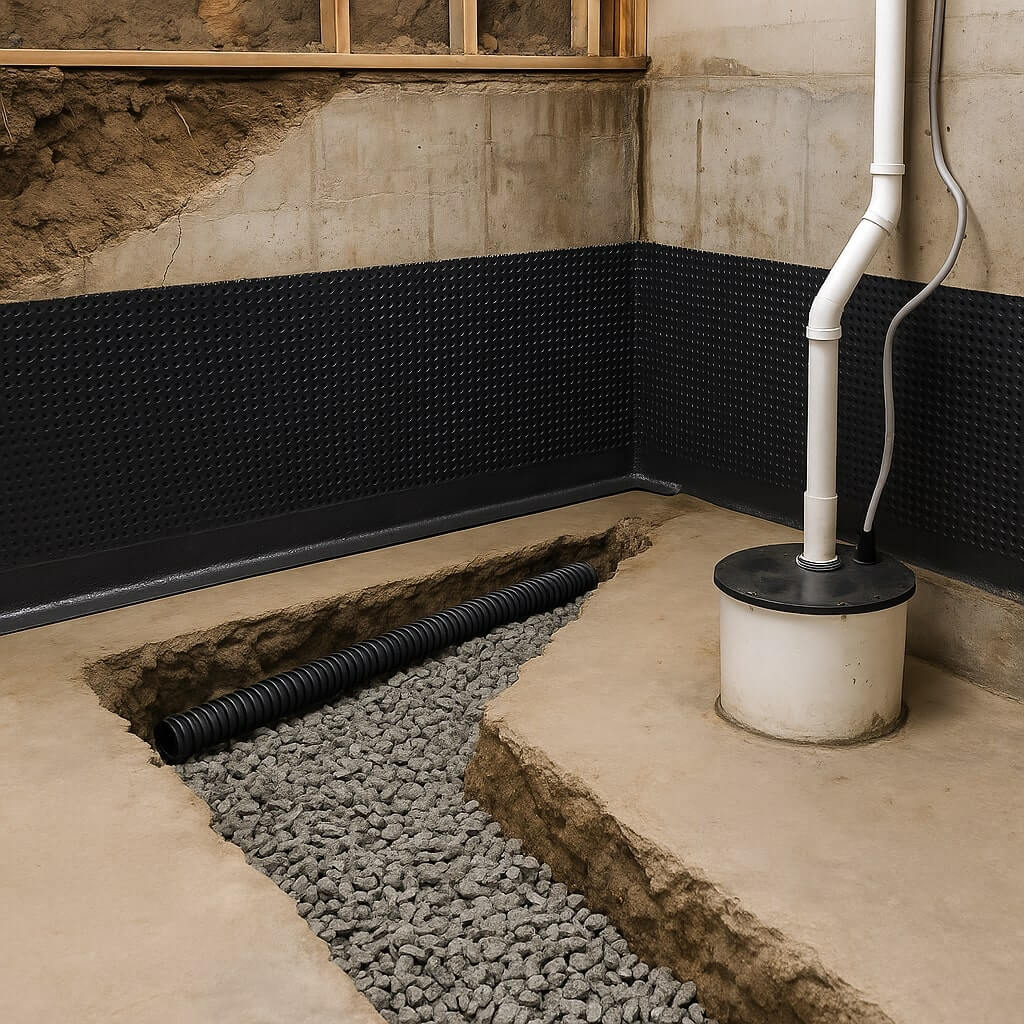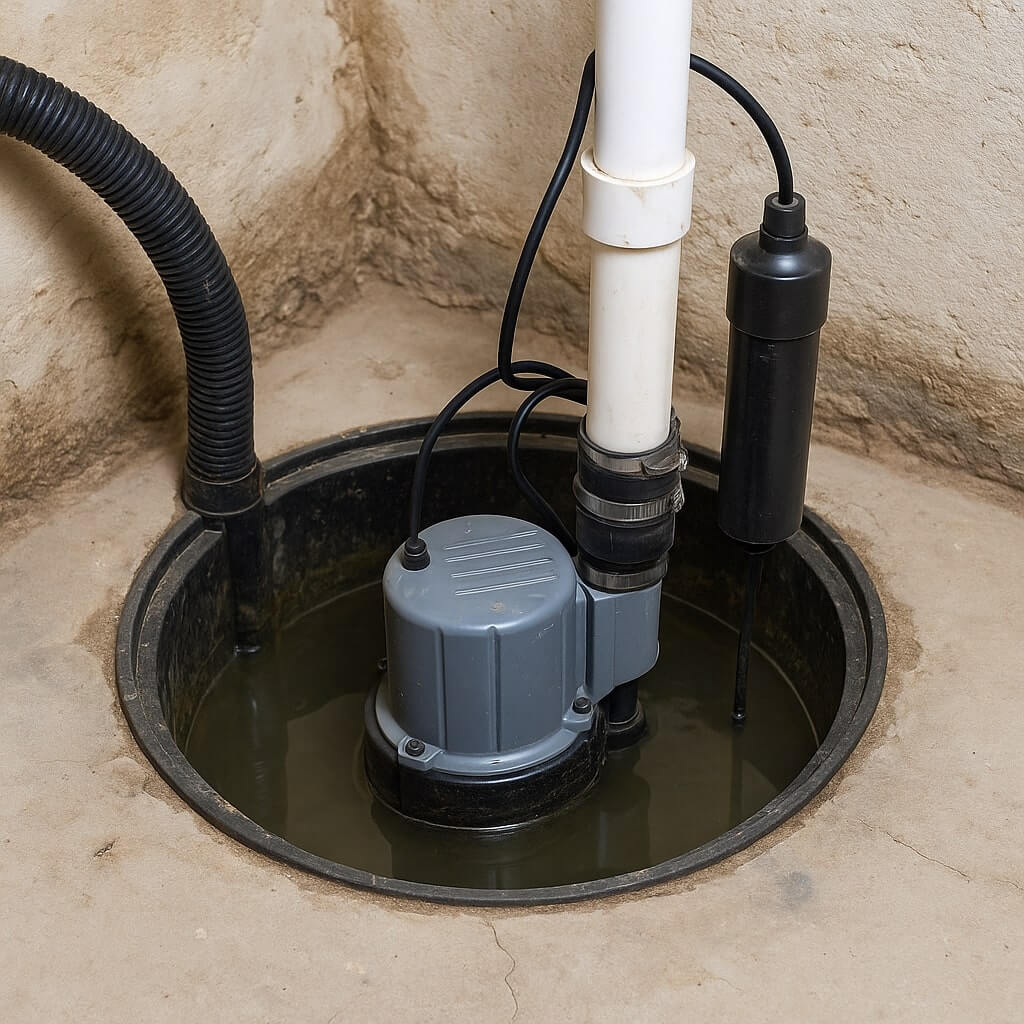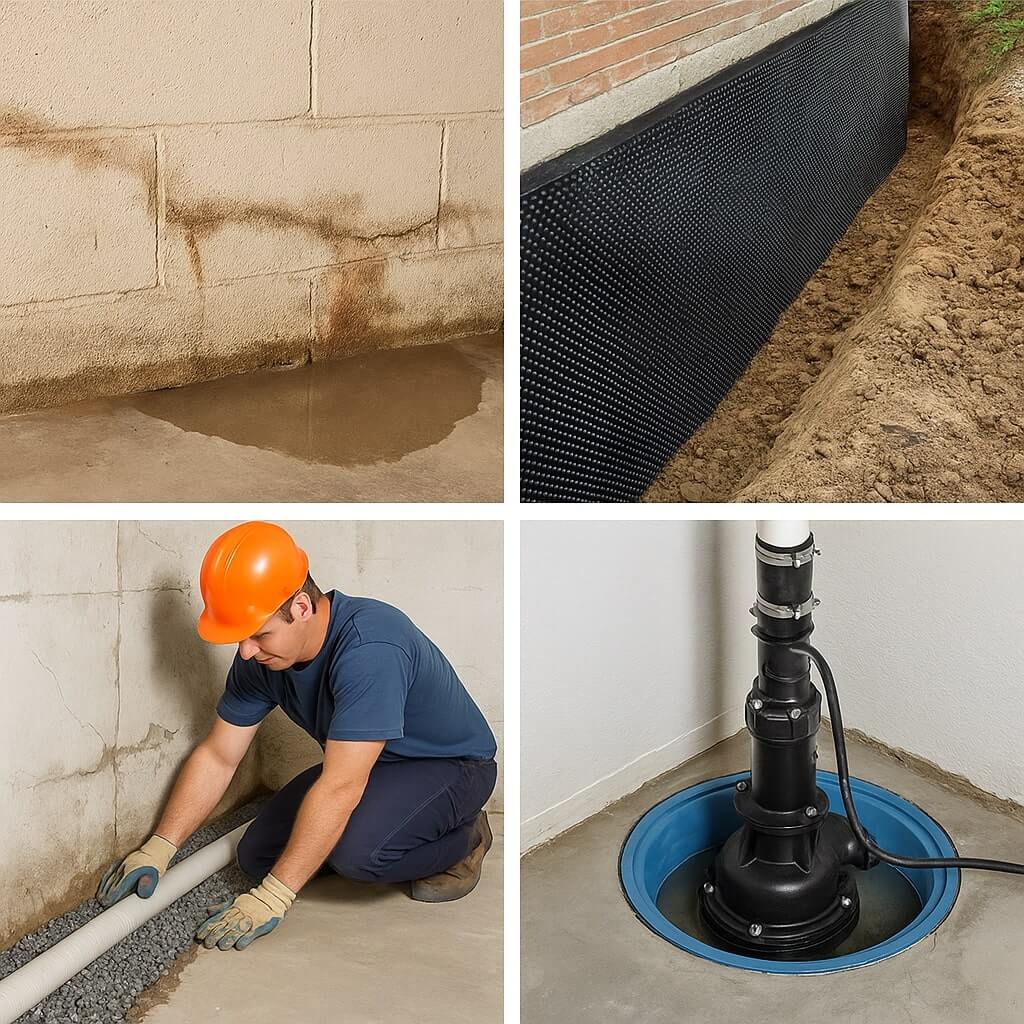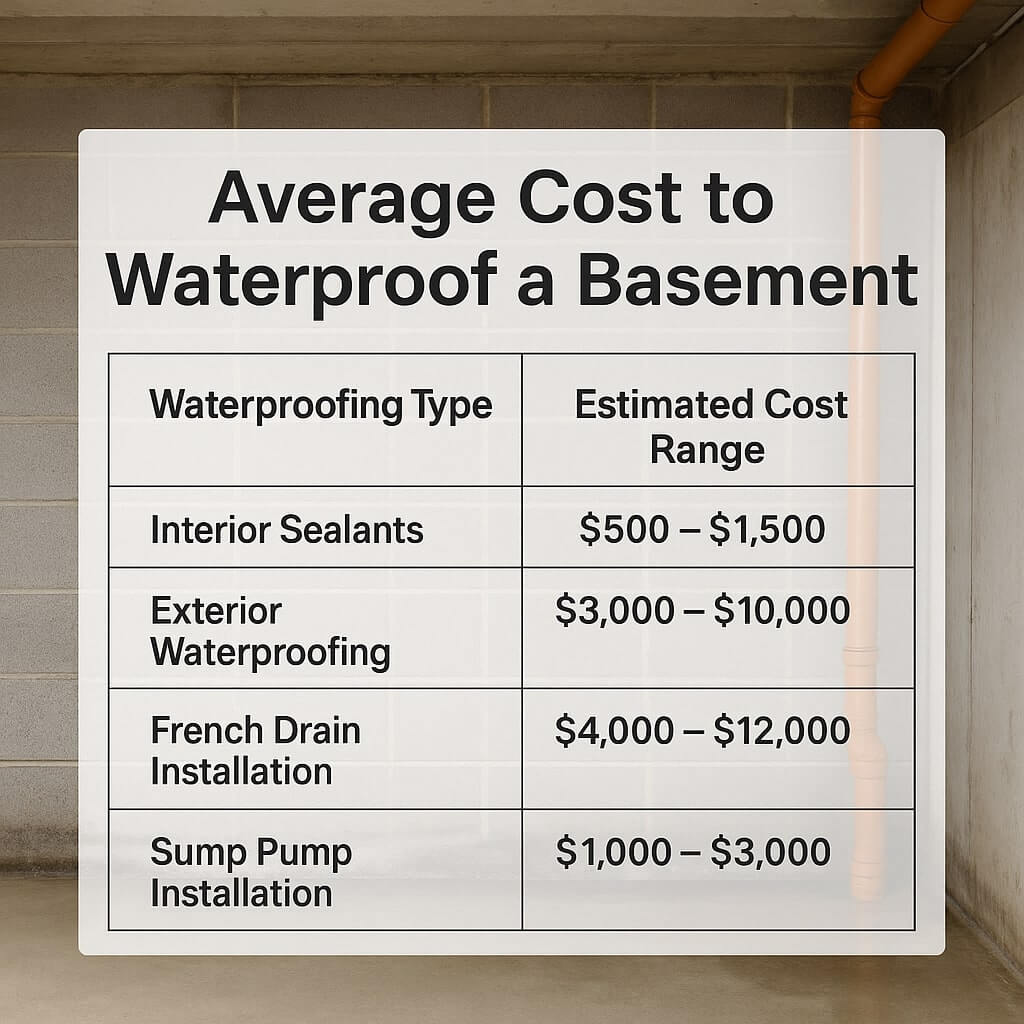Basement waterproofing is crucial for homeowners facing water intrusion, mold growth, or structural weakening. Water seepage not only damages belongings but also reduces property value and can lead to long-term health risks. In this detailed case study, we explore a real-life basement waterproofing project, revealing the process, problems, and professional solutions that ensured long-term success.
Project Background: The Client and Initial Assessment
The homeowner, located in a flood-prone area with high water tables, reported:
- Persistent musty odors
- Visible mold on basement walls
- Water pooling after heavy rain
- Cracks in the foundation walls
Initial Inspection Findings
A thorough inspection revealed:
- Hydrostatic pressure causing wall seepage
- Poor external drainage and clogged gutters
- Inadequate waterproof membrane on the foundation
- Crumbling mortar joints
Step-by-Step Waterproofing Process
1. Exterior Excavation and Waterproof Membrane
The crew excavated the soil around the foundation and installed a high-performance waterproofing membrane to block moisture penetration.
SEO Tip: Waterproofing foundation walls from the outside provides a long-lasting barrier against moisture ingress.
2. Interior French Drain Installation
To deal with rising groundwater, an interior French drain was installed along the perimeter. This included:
- Trenching the basement edges
- Placing perforated pipes in gravel
- Connecting to a reliable sump pump system
3. Sump Pump with Battery Backup
A top-tier sump pump system was installed with a battery backup to ensure operation during power outages — a common issue during storms.
4. Crack Injection and Wall Repair
Polyurethane injections sealed all foundation cracks. This flexible material expands with temperature changes, ensuring durability.
5. Dehumidification and Mold Remediation
After waterproofing, industrial-grade dehumidifiers and HEPA filters were used to eliminate residual moisture and mold spores, creating a healthy environment.
Results: Before and After Waterproofing
| Aspect | Before Waterproofing | After Waterproofing |
|---|---|---|
| Water Intrusion | Frequent flooding | Completely dry |
| Air Quality | Musty, moldy | Clean and fresh |
| Wall Condition | Cracked, damp | Sealed and stable |
| Basement Usage | Unusable | Livable space |
The homeowner converted the basement into a home gym and office space within weeks of project completion.
Key Takeaways
- Comprehensive diagnosis is essential before choosing a waterproofing method.
- Combining exterior and interior solutions offers superior, long-term protection.
- Sump pump backups are critical for power outage resilience.
- Preventive maintenance like regular gutter cleaning can prevent future issues.
Frequently Asked Questions (FAQs)
What is the best method for basement waterproofing?
How much does basement waterproofing cost?
How long does waterproofing a basement take?
Is interior basement waterproofing enough?
Can I waterproof a basement myself?
What are the signs I need basement waterproofing?
Musty odors or visible mold
Foundation cracks
Water pooling after rain
How long does waterproofing last?
Final Thoughts
Basement waterproofing is an investment in your home’s structural integrity, air quality, and resale value. This case study demonstrates how a holistic, professional approach can transform a problematic basement into a dry, usable, and healthy space. If you’re dealing with water issues, consult a certified waterproofing contractor to assess your needs.




